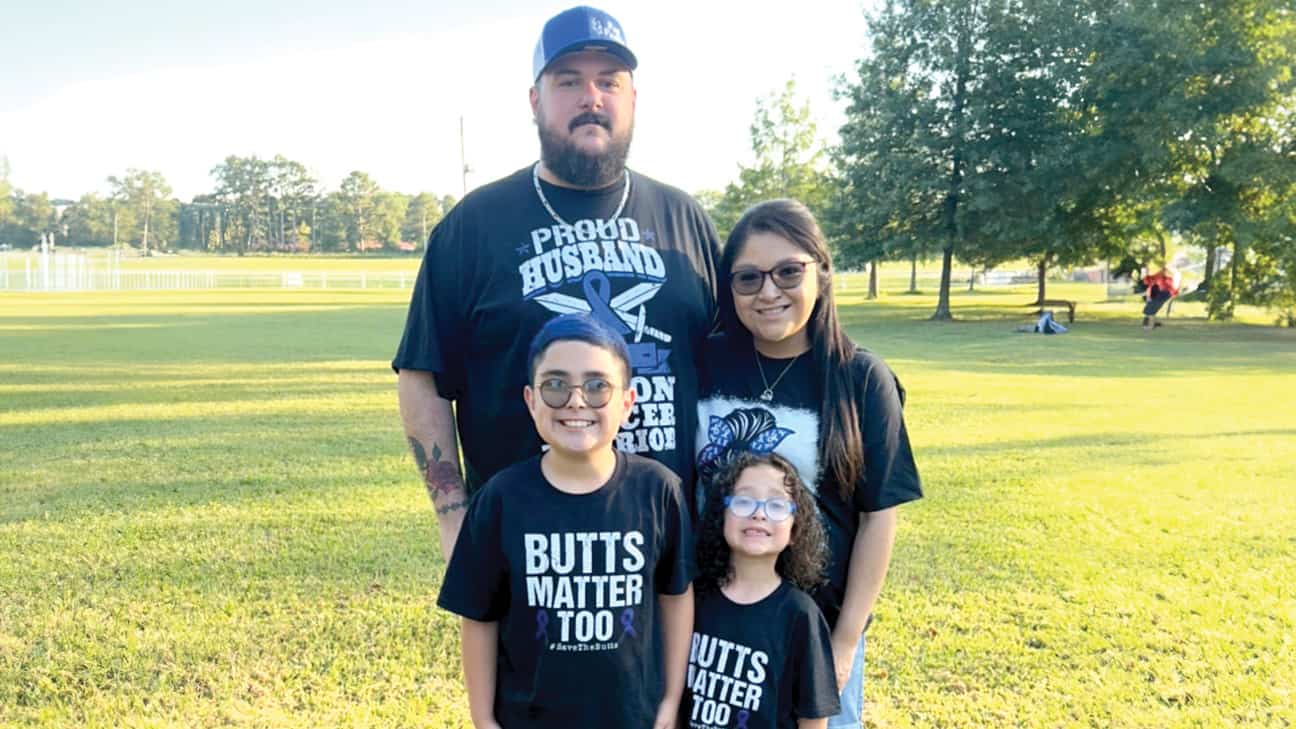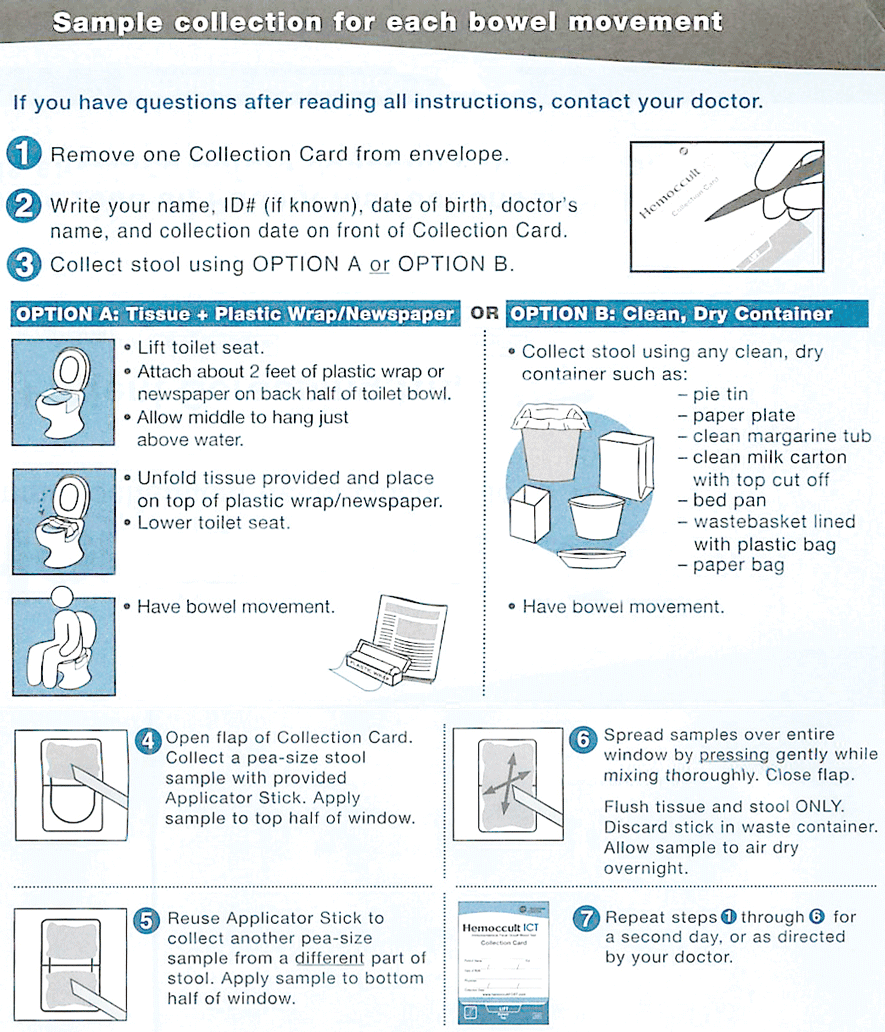
Yolanda Calvillo says she got through her colorectal cancer treatment and the death of her mother while undergoing those treatments by relying heavily on her family.
This one simple colorectal cancer test could save your life
Published March 5, 2024By Chris Jennings
According to the American Cancer Society, 2024 will be the first year the US expects more than 2 million new cases of cancer or almost 5,500 cancer diagnoses a day. The society reports that overall cancer death rates are lower, but the common cancer incidences are increasing, including 6 of the top 10 cancers.
American Indians and Alaskan Natives (AIAN) have the highest overall incidence and mortality rate in men and women combined. Alaskan Native people have the highest colorectal cancer incidence and mortality in the world.
The death rate from cancer has decreased over the last 30 years partially because of things like a decrease in smoking, early detection and advances in treatment, sparing some 4 million lives in the United States.
One alarming statistic is the rise of colorectal cancer in people younger than 55. In the late 1990s, colorectal cancer was the fourth leading cause of cancer death in both men and women in this age group, and now, it is the first cause of cancer death in men younger than 50 and the second cause in women that age.
Natassia Zink, a cancer nurse with the Choctaw Nation, said the age that the Nation begins screening for cancer has decreased from 50-75 years old to 45- 75 years old.
“They’re showing how significantly cancer impacts that age group. So, before we were offering screening if you could show you were high risk or you have family members who had colon cancer. Then, they would start the screening earlier, but only if you were at high risk. Now they’re starting it earlier, no matter your risk,” said Zink.
A big factor in stopping cancer deaths is this early screening.
Almost 1 out of 3 people diagnosed with colorectal cancer before age 50 have a family history or genetic predisposition, and if colorectal cancer is found early, it is treatable.
The more widely known screening for colorectal cancer is a colonoscopy. Those require using a preparation solution or pills the night before and a driver the day of the screening because you will be under sedation.
There’s more than one way to screen for colorectal cancer, though. The Choctaw Nation offers a fecal occult blood test kit (FOBT) available from your doctor or pharmacy.
“We collect a stool sample, and then they test it for blood because blood is a good indication of polyps or something else going on more than just your normal bowel habits,” said Zink.
Zink says there is an upside to getting the colonoscopy, though.
“If you’re negative, that could cover you for ten years. The stool sample collection FOBT kits are a yearly test. So, you can collect your stool at home once a year every year,” she said. “Which some people don’t want to do, or you can do the prep and colonoscopy, and if there are no polyps, you’re good for ten years.”
Thanks to the Moonshot Grant, the Nation can offer these FOBT kits as a standing order.
“With this grant, we did get a standing order for it, so you don’t even have to see your provider. You could call your provider’s nurse or the pharmacy and just say, hey, I want to do this,” said Michelle Gibson, the Director of Preventative Health at the Choctaw Nation.
According to Gibson, if you’re having pain or bowel issues, it might be a good idea to request an FOBT kit.
In September 2020, in the middle of the COVID-19 pandemic, Yolanda Calvillo had some pain and blood in her stool, so her doctor sent her for a colonoscopy. When the results came back, her life was changed at 31 years old.
“I knew what was coming; it was right in the middle of the pandemic, and the clinic wouldn’t allow anyone else in but you unless it was a younger child,” said Calvillo. “So that day, when I went back to get my results, they asked me if I was by myself, and I told them no, my husband was in the car outside, and they said go ahead and bring him in. I pretty much knew right then.”
Calvillo said she went blank and couldn’t process anything they said after she heard the words, “So, it does look like you have cancer.”
She does remember what was going through her head at the time. She wondered if she was going to die and didn’t know why or how she got cancer.
According to Calvillo, she was a healthy person and can’t even remember the last time she got a cold.
For anybody who is diagnosed with cancer, it can be a struggle of a lifetime.
Calvillo says she relied heavily on her family to get through it.
“That’s the only way I got through it; my family, my boys, my husband, they’re the only ones that kept me sane. If it weren’t for them, I would have given up because it was hard; It still is hard,” said Calvillo. “It’s so frustrating every time I go to the doctor, just not knowing what they’re going to say.”
One person whom Calvillo said was her rock and who she heavily leaned on was her mother.
Unfortunately, right after Calvillo’s cancer diagnosis, her mother was diagnosed with COVID-19 and spent a month in the hospital until her death.
“Me, my sister and my brother all rode in a car together with my husband to the hospital. We had to make the decision at that point to unplug her, but none of us could go in there. So we literally just had to tell her goodbye over the phone,” Calvillo said. “That just made me more mad at my cancer. I couldn’t even hold my mom’s hand and tell her bye. So that was really hard.”
In Cavillo’s case, the cancer was treatable, and she’s been cancer-free for two years now.
Zink says if cancer is found early, it typically is treatable.
“If you find it in an early stage, they can likely treat it, and that’s it,” Zink said.
Sometimes, it’s difficult to get people who may not be exhibiting any symptoms to get screening.
“You’re not having symptoms; you’re not having stomach pain; your labs aren’t looking crazy, so there’s really no reason to think you have colon cancer unless you get the testing,” said Zink.
However, screening is the key to surviving. A lot of times, you don’t have any symptoms until you’re at stage four cancer. At that point, it’s too late.
“If you let it get so far advanced that the mass gets so big that it goes through your colon wall into your lymph nodes, it can go straight to your liver. You don’t want it to get that far,” said Gibson.
During a colonoscopy, if a polyp is found, it’s removed right away.
“They get rid of them, the polyp is gone, and then that polyp cannot become cancer,” Zink said.
Colorectal cancer can mostly be treated if it’s found early; the key to that is screening. Getting people to get the screening is an ongoing struggle for Gibson and Zink.
The ease of using the FOBT kit can alleviate some of that.
“I don’t think there’s enough knowledge out there that the FOBT at-home test kit is an option within Choctaw Nation. I think many people think their only option is a colonoscopy,” Zink said. “You know, it’s not the end-all-be-all. If you get a positive, you’re still going to have to follow through to the end of it, but it is better than choosing to do nothing.”
It’s always a good thing to stay proactive when it comes to your health care. Ask your doctor about colorectal cancer screenings. These tests could save your life.
For more information visit Choctaw Nation Health Services Authority.


